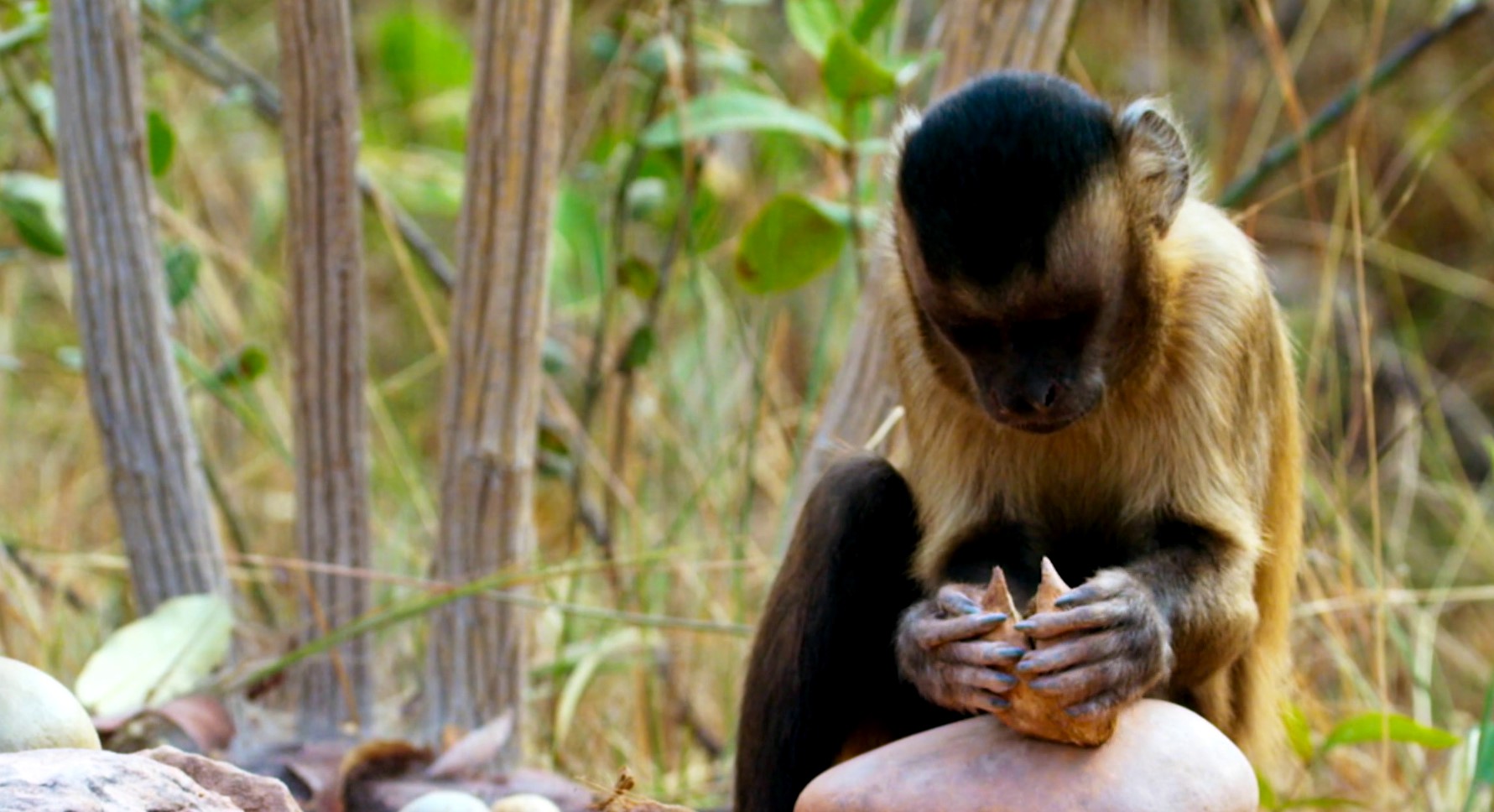
When it comes to understanding living organisms, one of the most fascinating aspects is their ability to learn and exhibit learned behavior. From simple organisms to complex beings like humans, the ability to acquire and modify behaviors through experience is a remarkable feat of adaptation. In the realm of biology, the study of learned behavior opens up a world of intriguing discoveries and insights into how organisms interact with their environment.
In this article, we will dive into 14 astounding facts about learned behavior. You will uncover the incredible capabilities of various species, from insects to mammals, and explore the mechanisms behind how learned behaviors are acquired and maintained. Whether it’s the adaptive strategies of animals, the power of imitation, or the effects of rehabilitation on human behavior, we will unravel the wonders of learned behavior and its significance in the natural world.
Key Takeaways:
- Animals and humans can learn behaviors from their experiences and environment, helping them survive and adapt. Learning is not just for school!
- Behaviors can be shaped by rewards, punishments, and even watching others. Understanding how we learn can help us understand ourselves and the animals around us.
Learning is a fundamental aspect of human behavior.
Learning is a process through which individuals acquire knowledge, skills, and behaviors from their experiences, environment, and interactions with others.
Learned behavior is not innate, but rather acquired through external influences.
Unlike innate behaviors, which are instinctual and present at birth, learned behaviors are developed and shaped over time.
Humans are not the only species capable of learned behavior.
Many animals, including mammals, birds, and even some insects, exhibit varying degrees of learned behavior.
Classical conditioning is a common form of learned behavior.
Classical conditioning was famously demonstrated by Ivan Pavlov and involves associating a neutral stimulus with a reflex response.
Operant conditioning is another important type of learned behavior.
In operant conditioning, behavior is strengthened or weakened based on the consequences that follow it.
Observational learning is a powerful form of acquiring new behaviors.
Observational learning occurs when individuals learn by watching others and imitating their actions.
Habituation is a type of learned behavior that involves a decrease in response to repeated stimuli.
After repeated exposure to a stimulus, the response diminishes, indicating a learned decrease in sensitivity.
Learned behavior can be adaptive and help organisms survive in their environments.
Through learning, individuals can acquire skills and knowledge that aid in finding food, avoiding predators, and mating successfully.
Behavioral traits that are learned can be passed down through generations.
Learned behaviors can be culturally transmitted or taught from one generation to the next, contributing to the survival and adaptation of a species.
Learned behavior can be unlearned or modified through the process of extinction.
Extinction occurs when a learned behavior is no longer reinforced, leading to a decrease or elimination of that behavior.
The process of learning and acquiring new behaviors can continue throughout an individual’s lifespan.
Humans and animals can learn and adapt to new environments and situations at any age, demonstrating the plasticity of learned behavior.
Culture plays a significant role in shaping learned behavior.
Social norms, traditions, and customs are learned and passed down through generations, influencing the behavior of individuals within a society.
Learned behavior can be influenced by both positive and negative reinforcement.
Rewards and punishments play a crucial role in reinforcing or discouraging certain behaviors, shaping an individual’s learned behavior.
The study of learned behavior has implications in various fields, including psychology, education, and animal behavior.
Understanding how learning occurs and how behaviors are acquired can provide valuable insights into human development and the behavior of other animals.
Conclusion
Learned behavior is a fascinating aspect of biology that highlights the adaptability and flexibility of living organisms. From the ability to acquire new skills to the capacity to adjust behaviors based on environmental stimuli, learned behavior plays a crucial role in survival and success.
Throughout this article, we have explored 14 astounding facts about learned behavior. We have discovered how animals and humans learn from their experiences, adapt to new situations, and even shape their own behaviors through conditioning. From imprinting in birds to social learning in primates, the world of learned behavior is a rich and intricate tapestry.
Understanding the mechanisms behind learned behavior not only deepens our appreciation for the intricacies of the natural world but also has practical implications in various fields, such as education, psychology, and animal training. By unlocking the secrets of learned behavior, we can better understand ourselves and the remarkable abilities of other living organisms.
FAQs
Q: What is learned behavior?
A: Learned behavior refers to the acquisition of new behaviors or modifications of existing behaviors through experience or environmental stimuli.
Q: Are all behaviors learned?
A: No, not all behaviors are learned. Some behaviors, called innate behaviors, are genetically programmed and do not require learning.
Q: How do animals learn?
A: Animals can learn through various mechanisms such as classical conditioning, operant conditioning, observation, and trial-and-error learning.
Q: Can humans change their learned behaviors?
A: Yes, humans have the ability to change their learned behaviors through conscious awareness, self-reflection, and deliberate practice.
Q: Is learned behavior limited to animals?
A: No, learned behavior is not limited to animals. Humans, being a part of the animal kingdom, exhibit learned behaviors as well.
Q: Can learned behaviors be passed on to offspring?
A: In some cases, learned behaviors can be passed on to offspring through a process called social learning, where individuals observe and imitate the behaviors of others.
Q: Are all learned behaviors beneficial?
A: Not all learned behaviors are beneficial. Some learned behaviors may be maladaptive or counterproductive in certain situations.
Q: Can learned behaviors be unlearned?
A: Yes, learned behaviors can be unlearned through a process known as extinction, where the learned association is gradually weakened or eliminated through lack of reinforcement.
Q: Can learned behavior be a form of evolution?
A: Learned behavior can play a role in evolution by enabling organisms to adapt to changing environments and increasing their chances of survival and reproduction.
Q: Do all individuals within a species exhibit the same learned behaviors?
A: No, not all individuals within a species exhibit the same learned behaviors. Factors such as individual experiences, genetics, and environmental factors can give rise to variation in learned behaviors.
Q: Are learned behaviors permanent?
A: Learned behaviors can be relatively permanent, but they can also be modified or even erased through new learning experiences or changes in the environment.
Q: Can learned behaviors be instinctual?
A: While learned behaviors are typically acquired through experience, in some cases, certain behaviors may have a combination of innate and learned components.
Q: Can learned behaviors be observed in plants?
A: Although plants do not exhibit behaviors in the same way that animals do, they can respond to environmental stimuli and exhibit adaptive responses, which can be considered a form of learned behavior.
Q: Can learned behaviors be used to modify animal behavior in training?
A: Yes, learned behaviors are the foundation of animal training, where desired behaviors are reinforced, and undesirable behaviors are discouraged or extinguished through appropriate techniques.
Learned behavior is a fascinating subject, but it's just the tip of the iceberg when exploring the human mind. Dive deeper into the captivating world of psychology with our collection of intriguing psychology facts. For a more focused look at one of the most influential figures in the field, check out our article on the groundbreaking work of Dr. B.F. Skinner and his contributions to operant conditioning. Whether you're a student, researcher, or simply curious about human behavior, these articles will provide valuable insights and keep you engaged.
Was this page helpful?
Our commitment to delivering trustworthy and engaging content is at the heart of what we do. Each fact on our site is contributed by real users like you, bringing a wealth of diverse insights and information. To ensure the highest standards of accuracy and reliability, our dedicated editors meticulously review each submission. This process guarantees that the facts we share are not only fascinating but also credible. Trust in our commitment to quality and authenticity as you explore and learn with us.


